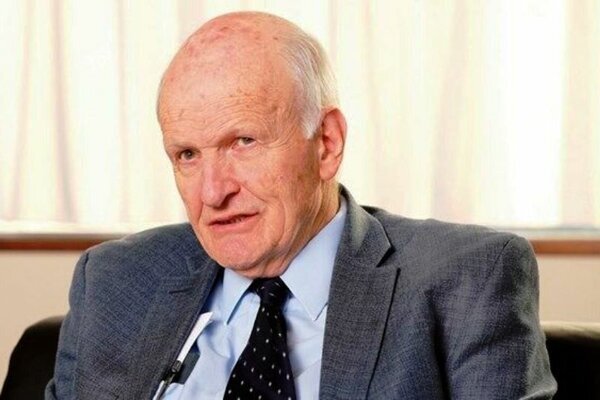Most U.S. sanctions have been counterproductive: Hippel

TEHRAN – Iran warned Washington on Tuesday that the window to rejoin the 2015 nuclear deal won’t remain open for an indefinite time.
Iranian authorities expect the White House to swiftly lift economic sanctions that former President Donald Trump illegally imposed on the country after withdrawing the U.S. from the 2015 nuclear pact (the Joint Comprehensive Plan of Action) in 2018, as part of a campaign called “maximum pressure” against Iran.
However, Frank von Hippel, the former assistant director for National Security in the White House Office of Science and Technology Policy, believes that the sanctions failed to achieve their goals.
The U.S. made a number of serious and difficult-to-forgive mistakes in its foreign policy since the end of World War II. One was the overthrow of Iran’s elected Prime Minister Mohammad Mossadegh in 1953. Others were the Vietnam War and the overthrow of the governments of Guatemala and Chile. Among the most recent was President Trump’s decision to take the U.S. out of the JCPOA.“There may be some U.S. sanctions unrelated to the JCPOA that will be kept, but most U.S. sanctions have been counterproductive by strengthening the political power of the hard-liners in Iran who do not want to negotiate over anything,” Hippel tells the Tehran Times.
According to Hippel, American hard-liners like sanctions for the same reason. “So, in general, I think that sanctions are counterproductive.”
The Iranian Parliament voted on December 1 in favor of a bill called “Strategic Action to Lift Sanctions and Safeguard Interests of the Iranian People,” which tasked the government to suspend more commitments under the JCPOA.
Iranian lawmakers consider the move as an opportunity given to the Western side to facilitate Iran’s oil sales and normalize its banking ties with the world in two months.
Confirming the failure of the American campaign to cripple Iran’s economy, the American physicist says that “in most cases, I think U.S. forcing companies in other countries to join in U.S. sanctions by forcing them to choose between the U.S. and Iran’s market is not a good idea.”
Some political observers believe that America’s pressure policies against other countries herald a decline of U.S. hegemony, as it lacks soft power and is being forced to resort to sanctions pressure to impose its will.
“The U.S. made a number of serious and difficult-to-forgive mistakes in its foreign policy since the end of World War II. One was the overthrow of Iran’s elected Prime Minister Mohammad Mossadegh in 1953,” Hippel says, adding, “Others were the Vietnam War and the overthrow of the governments of Guatemala and Chile. Among the most recent was President Trump’s decision to take the U.S. out of the JCPOA.”
Besides the international crises that the Trump administration left for Joe Biden, the U.S. today faces multiple domestic problems such as racial discrimination and internal division.
“The U.S. is in very serious trouble internally but I hope we will be able to deal with our problems of political division and inequality,” Hippel notes.
Hoping that the U.S. can play a leading role in the world, the American academic emphasizes that the U.S. should not unilaterally try to impose its will on other countries.
“We can play a leading role but we should not act unilaterally against other countries,” Hippel suggests.
While Iranian authorities are highly skeptical of the new U.S. administration’s desire to rejoin the JCPOA and lift the sanctions, Hippel, who now teaches at Princeton University, argues that the Biden administration is serious to renter the deal but it needs to move more rapidly.
However, some observers say that the nuclear deal is dead since Trump pulled Washington out of the pact. They also say some European countries are now trying to impose new terms on the deal, a move that can complicate the situation due to Iran’s refusal to renegotiate the terms of the deal.
Nevertheless, Hippel argues that “no additional conditions should be imposed for the U.S. rejoining the JCPOA beyond Iran coming back into compliance.”
“I think that is where we will end up but we are currently delayed by a silly argument over who returns to compliance first, probably it will be easiest to deal with this problem by breaking each side’s reentry into steps that can be interleaved,” he suggests.
On the possibility that Iran may take more steps to approach China and other powers now that the West (America and the EU) has failed to implement its obligations, Hippel says, “This appears to be happening to some degree.”
But, he adds, Iran wants to make sure that “it doesn’t become so indebted to China that it loses its independence."
